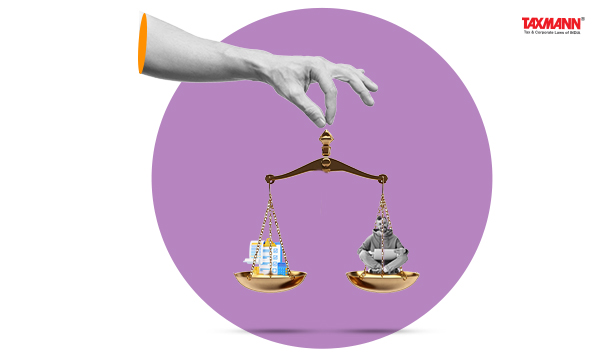Reassessment Justified if AO Ignored Provisions of Sec. 14A and Circular No. 5/2014 While Completing Assessment
- News|Blog|Income Tax|
- 3 Min Read
- By Taxmann
- |
- Last Updated on 15 June, 2024

Case Details: T.K.Salim vs. Union Of India - [2024] 163 taxmann.com 385 (Kerala)
Judiciary and Counsel Details
- Dinesh Kumar Singh, J.
- M. Gopikrishnan Nambiar, K. John Mathai, Joson Manavalan, Kuryan Thomas, Paulose C. Abraham & Raja Kannan, Advs. for the Petitioner.
- P.K. Ravindranatha Menon, (SR.), Jose Joseph, SC, Income Tax Department, Kerala, Navaneeth N. Nath, CGC, Susie B. Varghese, Adv. for the Respondent.
Facts of the Case
The petitioner was the proprietor of M/s. Greenland Condiments. He was also the managing director of a limited company that was involved in manufacturing wood, cork, straw, and plaiting materials. The petitioner filed returns of his income for the relevant assessment years.
Subsequently, the case was reopened under Section 147, and the assessment was completed by disallowing the interest paid on the loan availed for investment in the company in which the petitioner was the Managing Director. Such disallowance was made by the Assessing Officer (AO) by invoking Section 14A.
Aggrieved by the order, the petitioner filed a writ petition to the Kerala High Court.
High Court Held
The High Court held that section 14A had been amended with effect from 01.04.2022 by the Finance Act 2022. Before the amendment was incorporated, Circular No. 5/2014 clarified the position that in certain cases, where no income has been earned by an assessee who has been claimed as exempt during the financial year under Section 14A, the said expenditure would be disallowed even when the taxpayer in a particular year had not earned any income.
Section 14A was added by the Finance Act, 2001, with retrospective effect from April 1, 1962, and was amended in 2007 and again in 2022 by introducing a non-obstante clause for clarification. Subsections (2) and (3) were added by the Finance Act, 2006, effective from April 1, 2007, requiring that if the Assessing Officer (AO) is not satisfied with the accuracy of the assessee’s claim regarding expenses related to income that does not form part of the total income under the Act, AO shall determine the amount of such expenditure using a prescribed method.
Further, rule 8D of the Income Tax Rules, 1962, prescribing the methodology for determining the amount of the expenditure in addition to income not includible in total income, was inserted with effect from 24-3-2008 to implement sub-sections (2) and (3) of section 14A. It is a clear indicator that a new method for computing the expenditure was brought in by the Rules, which was to be utilised for computing the expenditure for the assessment years 2007-08 and onwards.
In the instant case, the AO had disallowed the interest the assessee paid on loans from Banks as business expenditure. The assessee had claimed a deduction of interest paid to the Bank on property loan. The said amount also included the interest paid on the loan availed for investment in the petitioner’s other business concern.
If the assessments concluded are not in accordance with the law, it is not a change of opinion but a valid reason for reopening the assessments. The AO had ignored the mandatory provision of Section 14A and Circular No. 5/2014 while completing the assessments, which were reopened.
Therefore, the AO had not committed an error of law or jurisdiction, and accordingly, the writ petition was dismissed.
List of Cases Referred to
- CIT v. Usha International Ltd. [2012] 25 taxmann.com 200/253 CTR 113/348 ITR 485/210 Taxman 188 (Delhi) (para 8),
- Income Tax v. Usha International Ltd. 2012 SCC OnLine Del 5645 (para 8),
- Others v. Marico Limited 190 DTR 0190 (para 8),
- M/s.Phool Chand Bajrang Lal and Another v. ITO and Another 4 SCC 77 (para 9)
- CIT v. Essar Teleholdings Ltd. [2018] 90 taxmann.com 2/300 CTR 561/401 ITR 445/253 Taxman 321 (SC) (para 17).
Disclaimer: The content/information published on the website is only for general information of the user and shall not be construed as legal advice. While the Taxmann has exercised reasonable efforts to ensure the veracity of information/content published, Taxmann shall be under no liability in any manner whatsoever for incorrect information, if any.



 CA | CS | CMA
CA | CS | CMA
